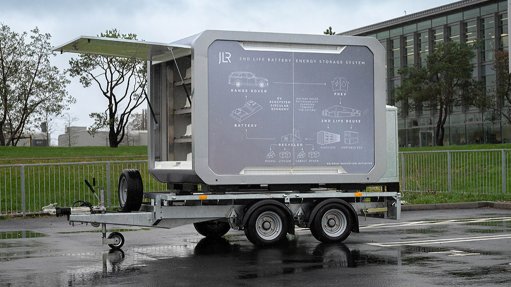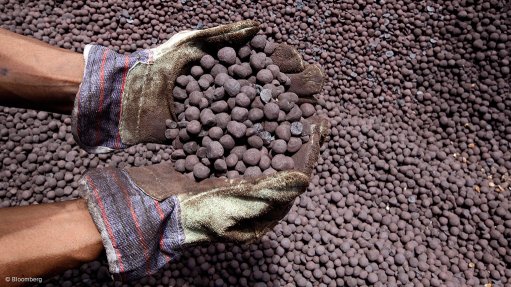Agriculture sector needs rail services
Although State-owned freight rail operator Trans- net’s R300-billion Market Demand Strategy (MDS) will pro- vide greater infrastructure for high traffic-density operations, such as transporting mining commodities and minerals, the agriculture sector finds itself without adequate rail services, says transport industry support group, says RailRoad Association of South Africa’s media and research officer, Allen Jorgensen.
He notes that the MDS appears to place more emphasis on high traffic-density commodities, as it offers greater profits than those of light-density traffic, such as agricultural produce.
“Transnet is concentrating on high traffic-density railway lines and has made breakthroughs in terms of moving sufficient container traffic between Durban and Johannesburg; it has also made inroads with regard to transporting motor vehicles for vehicle manu- facturers BMW and Mercedes- Benz. This is very encouraging, but just a start.
“South Africa needs to deliver agricultural products to ports and mills and many of the grain silos that do have access to railway lines are unable to use these, as there is no rail service to transport the goods or because access lines have been lifted,” Jorgensen explains.
suggests that, to improve rail transportation for the agriculture sector, concessioning the operations of many lines to private rail operators is needed.
He notes that Transnet has considered concessioning three rail operations, including a branch from Empangeni to Nkwalini, in KwaZulu-Natal. “Trains would have to travel to Tongaat Hulett’s Felixton mill, near Empangeni, but they would have to run for more than 9 km on Transnet’s line.
“However, the entire concession process will be undermined if Transnet does not provide ade- quate services when the private operator delivers the sugar cane. Alternatively, if Transnet were to provide open access for the private operator to run its own trains on Transnet’s tracks, the operation would be seamless and efficient. If not, the concession will fail,” warns Jorgensen.
He adds that it is difficult for private rail operators to effectively carry out rail operations, owing to Transnet being a State-owned company and having a monopoly on public rail operations. “Most traffic generated on a branch line will have to cross over to a main line, and private rail operations will be undermined if Transnet does not provide a reliable service or allow private operators to use main lines at a competitive rate.”
Rail is a more attractive transportation method than road, as it is significantly less costly when efficiently operated. Also, using rail reduces the rate of wear on highways, owing to fewer trucks using the roads, which also contributes to reducing the number of accidents.
Jorgensen states that trains are more fuel efficient than trucks and also generate far less carbon dioxide and other harmful emissions. Most branch line trains operating in South Africa are diesel- powered but the traffic they carry usually changes over onto electric-powered main lines, which derive energy mostly from thermal power stations.
The emissions from both thermal power stations, for the electricity generated to move rail traffic, and diesel-powered trains are significantly less than when transporting goods using trucks. Trains can transport more traffic using less energy, as a single train can replace between 50 and 100 trucks carrying general traffic on the road.
Comments
Press Office
Announcements
What's On
Subscribe to improve your user experience...
Option 1 (equivalent of R125 a month):
Receive a weekly copy of Creamer Media's Engineering News & Mining Weekly magazine
(print copy for those in South Africa and e-magazine for those outside of South Africa)
Receive daily email newsletters
Access to full search results
Access archive of magazine back copies
Access to Projects in Progress
Access to ONE Research Report of your choice in PDF format
Option 2 (equivalent of R375 a month):
All benefits from Option 1
PLUS
Access to Creamer Media's Research Channel Africa for ALL Research Reports, in PDF format, on various industrial and mining sectors
including Electricity; Water; Energy Transition; Hydrogen; Roads, Rail and Ports; Coal; Gold; Platinum; Battery Metals; etc.
Already a subscriber?
Forgotten your password?
Receive weekly copy of Creamer Media's Engineering News & Mining Weekly magazine (print copy for those in South Africa and e-magazine for those outside of South Africa)
➕
Recieve daily email newsletters
➕
Access to full search results
➕
Access archive of magazine back copies
➕
Access to Projects in Progress
➕
Access to ONE Research Report of your choice in PDF format
RESEARCH CHANNEL AFRICA
R4500 (equivalent of R375 a month)
SUBSCRIBEAll benefits from Option 1
➕
Access to Creamer Media's Research Channel Africa for ALL Research Reports on various industrial and mining sectors, in PDF format, including on:
Electricity
➕
Water
➕
Energy Transition
➕
Hydrogen
➕
Roads, Rail and Ports
➕
Coal
➕
Gold
➕
Platinum
➕
Battery Metals
➕
etc.
Receive all benefits from Option 1 or Option 2 delivered to numerous people at your company
➕
Multiple User names and Passwords for simultaneous log-ins
➕
Intranet integration access to all in your organisation


















